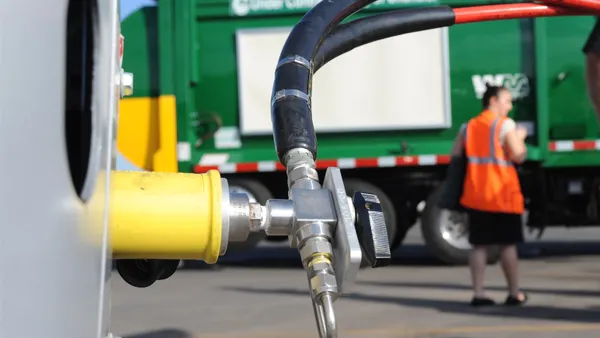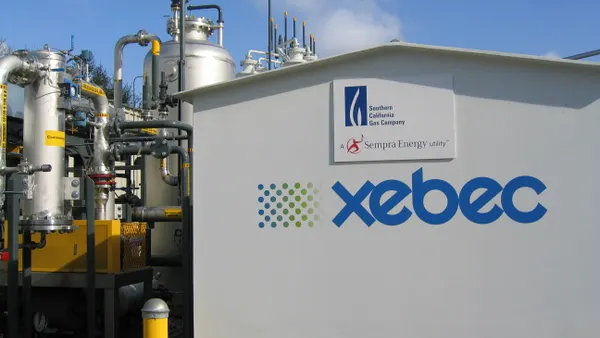Dive Brief:
- Officials in Tampa, Florida have informed employees of the McKay Bay incinerator that the city will take over operation of the facility from Wheelabrator in eight months, the Tampa Bay Times reported. The transition will be in full effect come June 2020.
- The decision is a financial one, following a May 2018 feasibility study that found the shift could save Tampa up to $5 million annually. Around 40 people currently work at the plant and the city has indicated it hopes to maintain all of those employees. Brad Baird, public works administrator, told Waste Dive the move is "the best business decision" for the city.
- Pete DiCecco, Wheelabrator's vice president of waste-to-energy, told Waste Dive in a statement that the company has served Tampa with a "demonstrated commitment to environmental compliance and operational excellence" for more than three decades. DiCecco said Wheelabrator looks forward "to continuing to provide our operational and technical expertise to the City of Tampa during this transition period."
Dive Insight:
Tampa's decision counters the growing trend of privatization currently playing out with utilities and trash collection in other cities, but the shift isn't unprecedented. In 2014, across the country from Tampa, Spokane, Washington informed Wheelabrator that the city would be taking over the West Plains facility operated by the company for around two decades.
In the time since that decision, the West Plains plant has come under scrutiny for its role as one of Washington's top sources of greenhouse gas emissions. But Spokane's move inspired Tampa officials, who have used its transition plan as a model after visiting the Washington city and finding themselves impressed by the cost-saving potential of taking over the McKay Bay plant.
"So much of the equipment is 34 years old, so investing back into the facility makes the most sense," Baird said in an email.
In an Oct. 8 letter to the Tampa City Council, Mark Wilfalk, director for the city's waste department, wrote that ongoing breakdowns and other maintenance issues have plagued the McKay Bay plant, a deciding factor in Tampa's decision.
With the amount saved by the transition, the city estimates it can hire another 10 employees, in addition to investing in upgrades and helping the plant run more efficiently. All workers that stay with the plant will become employees of the Solid Waste Department, and nearly all will be members of Amalgamated Transit Union Local 1464.
Wheelabrator currently has a $19.5 million per year contract with the city into 2032, which Tampa has proposed terminating for $2.5 million pending negotiations that will likely shift the final amount. DiCecco applauded the plant's current employees "for their dedication to safety and operational excellence" during Wheelabrator's tenure.
"We also extend our appreciation to our community and business partners we have worked closely with over time," he said. "We are pleased the City has also expressed interest in retaining all employees as part of the transition."
The McKay Bay plant, operating since 1985, takes up to 1,000 tons of residential and business waste on a daily basis. It generates 22 MW of fuel used by the local utility, which powers almost 13,000 homes in the area in addition to the plant itself.









